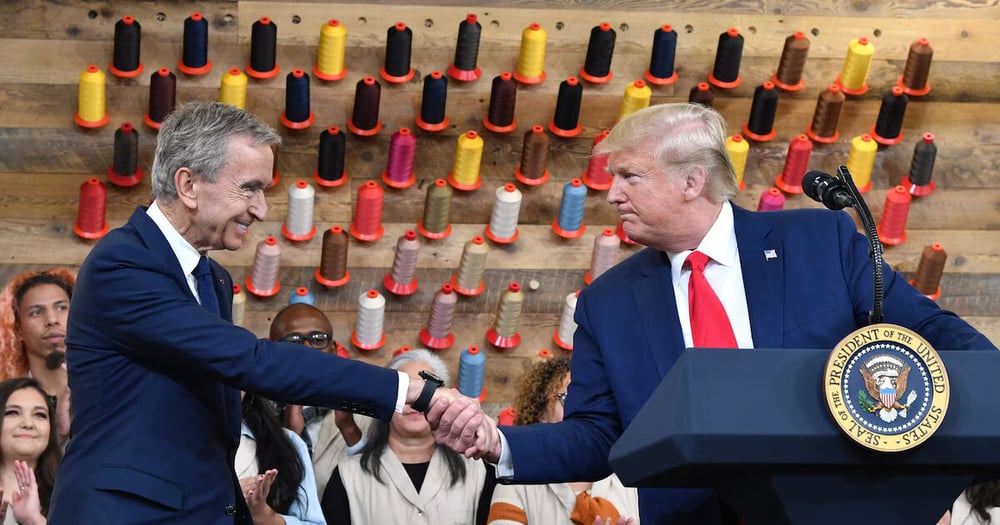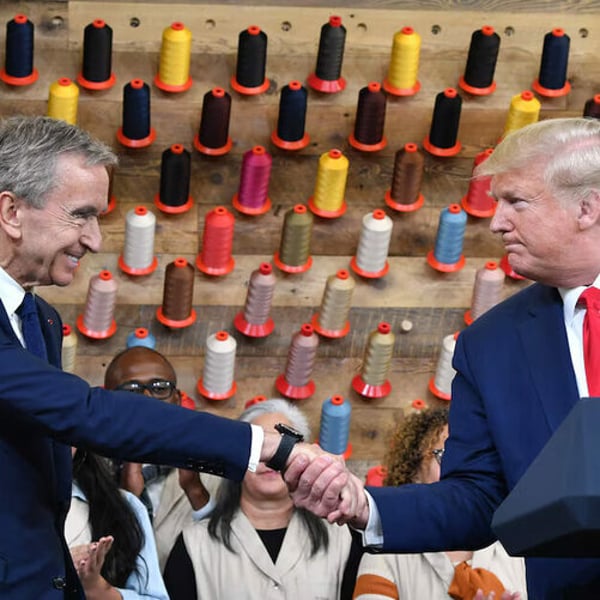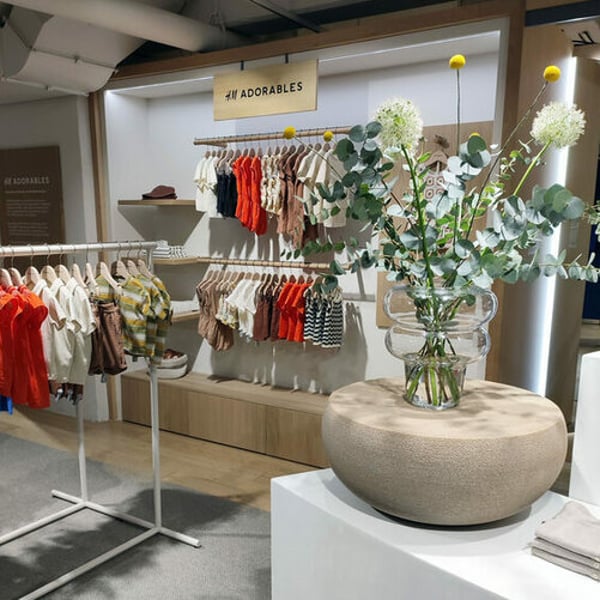By
AFP
Translated by
Nazia BIBI KEENOO
Published
April 26, 2025
French companies exposed to the U.S. market are taking action to manage rising tariffs, using price hikes, production shifts, and cost-cutting measures to protect their margins.

Price hikes to absorb new costs
Hermès, the French luxury brand famous for its Birkin bags and silk scarves, plans to raise prices across all product lines in the United States starting May 1. The move aims to offset the impact of new 10% tariffs, according to Chief Financial Officer Eric Halgouët. Hermès, which targets the high-end market, did not disclose the size of the increases.
At Kering, Gucci’s parent company, CFO Armelle Poulou said, “We believe we can protect our margins through price increases.”
Furniture maker Roche Bobois raised prices twice in early 2025—once in February and again in April—ahead of the tariff implementation. The company did not detail how much the prices increased.
Aerospace group Safran, which makes Leap engines for Airbus and Boeing jets, plans to impose surcharges on customers to cover tariff-related costs, said CEO Olivier Andriès.
Airbus, which also faces new tariffs when importing parts to its U.S. plant in Mobile, Alabama, said it would pass those extra costs along to customers. CEO Guillaume Faury confirmed the company’s exposure to the new trade barriers.
Shifting production closer to U.S. markets
Pharmaceutical giant Sanofi, which generates about half its revenue in the United States but bases only 25% of its production there, said it is considering expanding capacity at existing U.S. sites or partnering more closely with local subcontractors.
Bernard Arnault, CEO of luxury powerhouse LVMH, urged European leaders to resolve trade disputes “amicably.” He warned that LVMH would have no choice but to expand its U.S. manufacturing if tariffs increase. The group already runs three Louis Vuitton production sites and four facilities for Tiffany & Co. in the United States.
Meanwhile, Stanislas de Gramont, CEO of appliance maker Groupe SEB, said moving part of the company’s production from China to Vietnam could help contain costs. “We believe we can temper and contain this price increase by relocating part of our production from China to Vietnam,” he said on Radio Classique.
Cost-cutting to protect profits
Under the new U.S. rules, most goods face a 10% tariff, but imported cars are hit harder, with a 25% increase.
Renault said the tariffs would not directly impact it, but it will stay cautious about possible effects on U.S. consumer demand. The automaker is preparing an additional cost-reduction plan that could include postponing projects like the U.S. launch of its Alpine sports car brand.
Other French companies — including Air Liquide, Danone, Orange, and Thales — reported little to no impact from the new tariffs.
Copyright © 2025 AFP. All rights reserved. All information displayed in this section (dispatches, photographs, logos) are protected by intellectual property rights owned by Agence France-Presse. As a consequence you may not copy, reproduce, modify, transmit, publish, display or in any way commercially exploit any of the contents of this section without the prior written consent of Agence France-Presses.




